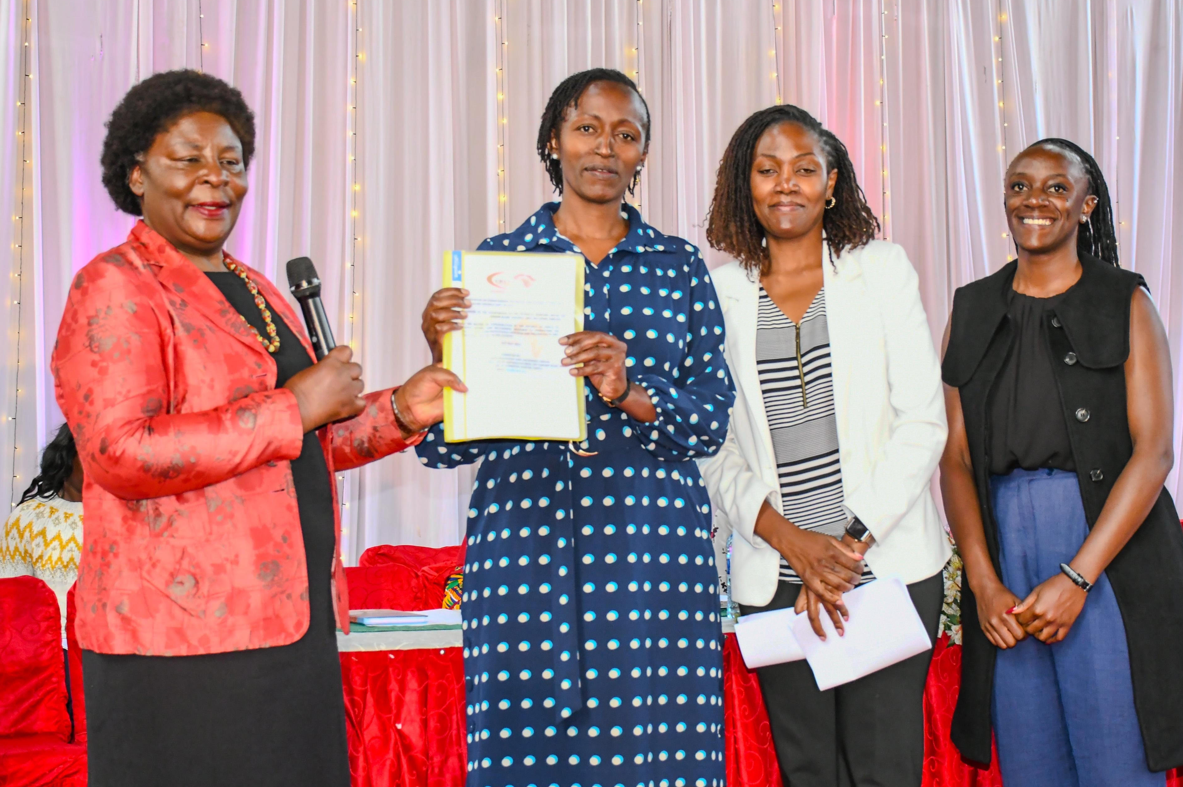

In 1995, a global promise was made in Beijing. It was a promise that the world would work towards gender equality, protect the rights of women and girls, and ensure that they would live in dignity, safety, and freedom.
I was just 15
years old then,
Thirty years later, the
Beijing Declaration and Platform for Action still echoes in our lives, its
unfulfilled promises woven into the hopes I carry for my daughter’s future.
As Wahu, a woman, an artist, a mother and as CREAW Kenya, an organisation grounded in the fight for gender equality and women’s rights, we believe it’s time to revisit the promise made to women and girls in Kenya.
Not as a distant policy commitment or political soundbite but as something deeply personal, urgent, and real. Because the truth is this:
The struggles women face today are not abstract. They are as immediate as a mother fearing complications during childbirth. As tangible as a young woman earning less than her male counterparts, despite equal or greater qualifications.
As relentless as the barriers women continue to navigate, just to be heard, seen, and valued. It’s time to honour that promise, not someday, but now.
For our daughters. For our sisters. For ourselves.
In Kenya today, maternal health remains a battleground for equity. Women still pay between Sh15,000 and 50,000 out of pocket to deliver a child. Many walk long distances to reach care; some give birth without any skilled attendant.
Nearly 56% of low-income women remain uninsured, leaving them at the mercy of an overwhelmed public health system. Girls and women continue to face stigma and barriers in accessing sexual and reproductive health services.
Though we celebrate progress in reducing maternal mortality, we cannot ignore the structural barriers: poverty, stigma, and inaccessibility that continue to cost women their lives. No woman should die giving life. That is not a privilege to earn. It is a right to demand.
Then there’s economic empowerment. According to a report by the World Economic Forum, Kenyan women still earn 23% less than men for doing the same work.
Many juggle unpaid care work, on average, 4.7 more hours per day than men, alongside jobs that don’t provide security or benefits (Kenya National Care Policy). Only 10% of women own land in their names. And even though 33% of Kenyan businesses are owned by women, many still face difficulties accessing credit, networks, and policy support.
Economic empowerment for Kenyan women remains out of reach for many. Despite being the backbone of households and communities, women still earn 23% less than men for the same work. They shoulder nearly five more hours of unpaid care work daily, often in addition to jobs that lack benefits or security.
Only 10% of women in Kenya own land in their names, a critical asset for financial stability. And though a third of Kenyan businesses are run by women, systemic barriers to credit, networks, and policy support persist. This is not just an economic problem, it’s a matter of dignity, justice, and the future we are shaping for generations to come.
This isn’t just about economics or healthcare. It’s about dignity. It’s about justice. And it’s about generational change.
That’s why we chose to have this conversation together, a mother and a daughter, a woman and an organisation, representing different generations but united by the same vision. Because Beijing wasn’t just a conference. It was a commitment to women and to me. And we believe that legacy must be carried forward.
We must ask ourselves: Are we preparing a future where our daughters won’t have to fight the same battles we did? Are we normalising dignity, equality, and care in the systems we’re shaping? Or are we passing down the same burdens wrapped in new packaging?
Kenya has made strides. We are proud of the progress. But we’re not done yet. It’s time to connect policies to lived realities. Time to make maternal care affordable, accessible, and respectful. Time to ensure women’s work, paid or unpaid, is valued and protected.
Time to close the pay gap. To fight for land rights. To ensure that no woman has to choose between her health and her livelihood.
Because the next generation is watching. And they deserve more.
Let this be the generation that fulfils the promise.
Let this be the generation that makes gender equality a lived reality.
Let this be the generation that truly becomes better for Kenya, for women, and for our daughters.
















